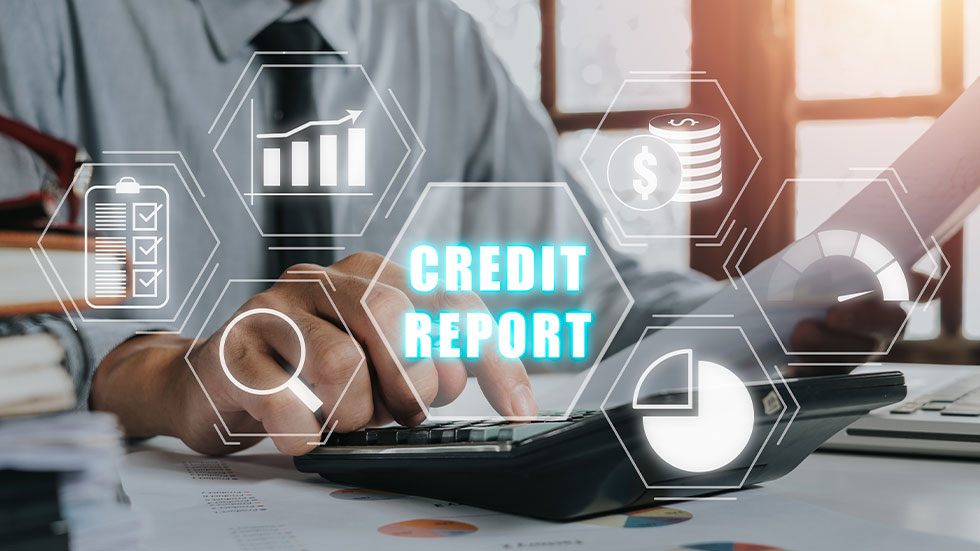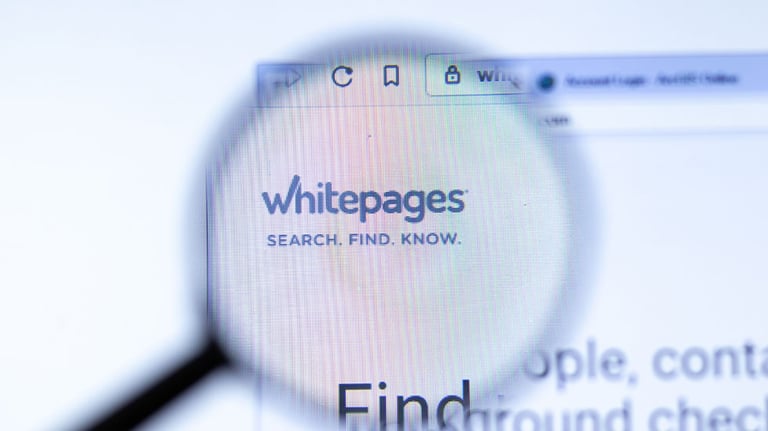8 Ways to Spot Free Credit Report Internet Scams
Identify and avoid free credit report scam websites with these internet security tips, fraud alerts, and—if needed—a credit freeze


The convenience of the internet also brings specific risks that await consumers when they try to access their financial information. Phony free credit report websites masquerade as legitimate sources to check your credit report while attempting to steal money and personal information from unsuspecting visitors.
With scammers adept at replicating the appearance and functionality of genuine credit report platforms, the line between authenticity and deception can get blurry. Here’s how to identify free credit report scams and stay secure while checking your credit reports.

What are free credit report online scams?
Phony free credit report websites pose as legitimate sources to check your credit. These websites try to copy the authentic, government-sponsored website annualcreditreport.com.
When consumers use search engines to look up their credit reports, they run the risk of encountering phony free credit report websites. Scammers set them up to pose as the real thing to steal visitors’ money and identities.
Equifax, TransUnion, and Experian each have their own websites where you can make an account to view your credit report for free. Additionally, these three companies jointly run annualcreditreport.com, where you can get your free credit report once per year. On the other hand, scam websites may demand payments for credit reports they sometimes can’t even access.

Tips to distinguish legitimate sources from scammers
If you find yourself on a website you aren’t sure about, here are ways to tell if the website is legitimate:
- The website should have the company’s contact information at the bottom of the page or on a separate page. If you can’t find it anywhere, that’s a good sign the website isn’t trustworthy.
- If you see the address and phone number, you can check if they’re tied to a legitimate business through www.whitepages.com.
- Check for obvious mistakes, typos, and strange wording throughout the website. Similarly, if the area code doesn’t match a given address, the company may be fraudulent.
- Check who the website belongs to with the WHOIS search tool.
- Annualcreditreport.com will ask for specific personal information, including your name, Social Security number, and address. However, if the website you’re on asks for other information—such as your bank account PIN, your credit card’s security code, or your passport number—it’s likely an attempt at identity theft.
- Legitimate websites require personal information before providing credit reports. Websites that don’t follow up for additional information are likely part of an online scam.
- Most web browsers place a padlock icon next to a web address to indicate a high level of security. Another indication is the phrase “https” at the front of the website name.
- Finally, it’s best not to engage with emails advertising credit reports. Instead, type annualcreditreport.com into the address bar of your web browser to check your credit information and avoid risky email links.

How to protect yourself from credit report scams
Here are some crucial strategies to keep your information away from fake credit report websites:
Avoid googling "free credit report"
Many fraudulent websites advertise free credit reports to lure unsuspecting users. Unfortunately, search engines like Google, Bing, and DuckDuckGo can display advertisements from untrustworthy sources when you search for your credit reports. Instead, it’s safest to directly visit annualcreditreport.com to access your credit reports.
Use ad-free search engines
Advertisements on search engines can sometimes lead you to phishing sites or fraudulent offers. Consider using ad-free search engines like Kagi or Brave Search to avoid ads that lead to scam credit report sites.
Freeze your credit
One of the most effective ways to prevent unauthorized access to your credit report is by placing a credit freeze with the major credit bureaus. When you freeze your credit, lenders and financial institutions can’t access your credit report. As a result, opening new lines of credit becomes impossible, preventing fraudulent activity. You can freeze and unfreeze your credit for free by contacting Experian, TransUnion, and Equifax individually.
Set up fraud alerts
If you suspect your personal information has fallen into the wrong hands, you can place a fraud alert on your credit. A fraud alert requires business to take additional steps to verify your identity before opening a new account in your name. This extra layer of security helps prevent criminal activity with your information.
Contacting one of the 3 credit bureaus for a fraud alert will automatically set it up with all of them. Plus, you’ll get a free credit report from each of the credit bureaus. The alert is free and will last 1 year, at which time you can renew it for free if you wish.
